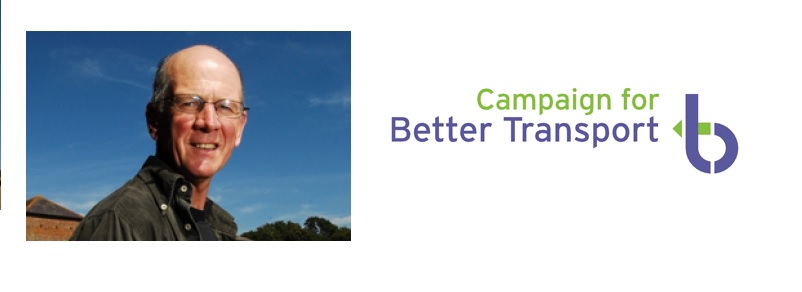On Tuesday May 26, about 15 members of the Rother Environmental Group attended a talk by Derrick Coffee about his work as a transport campaigner. Derrick has been involved in nearly every major transport issue in East Sussex from road building to bus timetables for over 20 years. He is the representative of the Campaign for Better Transport (CBT) for East Sussex. You can see a profile of him on the CBT website.
Among those attending the meeting in the Queen’s Head in Rye, were the current and former chairmen of the Marsh Link Railway, the chairman of Hastings Alliance (another active group dedicated to protecting our area from damaging roads) and the chairperson of the 1066 Cycle Club, as well as a leading figure in the organisation of Green Christian, another campaigning group.
The shocking revelations about how the Bexhill Link Road came to be built against government advice, in the face of better alternatives and without any supporting rational evidence, demonstrated how political influence and party loyalty can result in disastrous decisions. Derrick’s photographs and descriptions of the precious landscape of the Combe Valley, its wild life, archaeology and tranquility, all desecrated by this road, were enough to make some of his listeners weep.
He then described a current campaign. Rother District Council has recently failed to support the construction of a railway station at Glyne Gap. For those of you not familiar with this particular example of bad planning, it is a collection of supermarkets, leisure facilities and colleges, located at a pinch point on the highly congested road between Hastings and Bexhill. Virtually inaccessible by public transport, it is crying out for a station.
Derrick will be raising this subject again with Rother District Council in the hope that they may be persuaded to see sense – especially as the railway signalling has been upgraded and can easily accommodate the extra stop, without slowing up the main coastal railway journeys. He told us that the single college located close to Ore station had generated an additional 92,000 railway journeys.
He then talked about the impact of traffic on human life – particularly in towns – and how reducing motor traffic not only improved health through better air quality and more exercise, but also our general well-being, by encouraging community cohesion and feelings of safety.
It is not all doom and gloom, as he said there were now signs that traffic levels were declining and that some cycle schemes had been implemented. He hoped that the major new development in Bexhill could set an example, by being pedestrian and cycle friendly. Who knows, if we reduced the traffic enough maybe we could declare Rye a “Hello Zone” as in Plumpton Green!

The Rother Environmental Group meets most months and all are welcome to attend. More information is available on their website
Christopher is a committee member of the Rother Environmental Group



